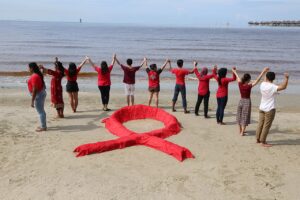World AIDS Day is an international civic day on the first of December, for raising awareness of the AIDS pandemic caused by the spread of HIV infection and mourning those who have died of the disease. The day was first conceived in August 1987 by James W. Bunn and Thomas Netter, two public information officers for the Global Programme on AIDS at the World Health Organization in Geneva, Switzerland. Bunn and Netter took their idea to Dr. Jonathan Mann, Director of the Global Programme on AIDS (now known as UNAIDS). Mann liked the concept, approved it, and agreed with the recommendation that the first observance of World AIDS Day should be on 1 December 1988. Bunn, a former television broadcast journalist from San Francisco, had recommended the date of 1 December that believing it would maximize coverage of World AIDS Day by western news media, sufficiently long following the US elections but before any holidays scheduled later in December.
The acquired immunodeficiency syndrome (AIDS) is a life-threatening condition caused by the human immunodeficiency virus (HIV). The HIV virus attacks the immune system of the patient and reduces its resistance to other diseases. Government and health officials, non-governmental organizations, and individuals around the world observe the day, often with education on AIDS prevention and control.



